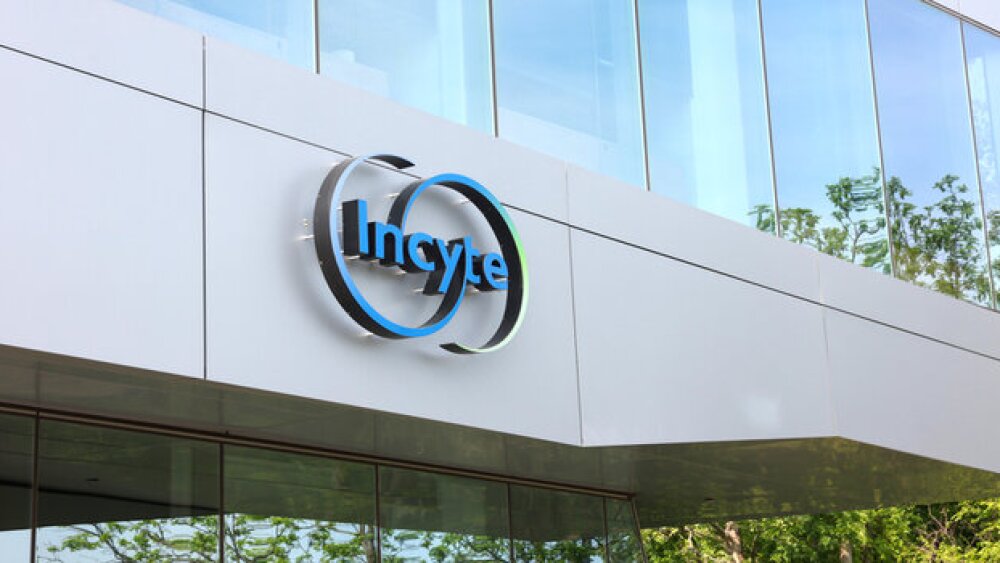The company’s ruxolitinib cream Opzelura led to higher rates of treatment success in children with atopic dermatitis than with a control cream.
Pictured: Incyte building in Delaware/iStock, Bo Shen
Top-line data from the Phase III TRuE-AD3 trial showed that Incyte’s Opzelura (ruxolitinib cream) met the study’s primary endpoint and induced treatment success in a higher proportion of children with atopic dermatitis than a control cream, the company announced Tuesday.
Incyte did not provide specific data in its news release but said that significantly more patients achieved the Investigator’s Global Assessment Treatment Success (IGA-TS) after eight weeks of treatment with Opzelura than with a non-medicated cream. Both of Opzelura’s 0.75% and 1.5% doses were statistically better than the control at achieving treatment success.
The IGA-TS defines treatment success as having a score of zero or one, corresponding to clear or almost clear skin, respectively. In addition, patients should demonstrate at least a two-point improvement in the IGA-TS score over eight weeks of treatment.
Tuesday’s data reinforce “the potential of ruxolitinib cream to offer children a much-needed effective, non-steroidal topical therapy,” Jim Lee, Incyte’s group vice president for inflammation and autoimmunity, said in a statement.
Incyte will engage regulators to determine the next steps for Opzelura in this indication. The company will also submit TRuE-AD3 data to be presented at an upcoming medical conference.
TRuE-AD3 is a randomized, double-blinded and vehicle-controlled study with more than 300 patients enrolled, all of whom were between the ages of two and 11 years and had been diagnosed with atopic dermatitis (AD) for at least three months.Participants also had IGA scores of two to three and had 3% to 20% of their body surface area covered with AD.
Besides efficacy, TRuE-AD3 also assessed the safety of Opzelura in this indication and found a safety profile consistent with prior published data for ruxolitinib cream. There were no new signals of concern, according to the company.
Incyte will conduct a long-term safety analysis of Opzelura,which will run for 44 weeks and be open to all patients who successfully complete the initial eight-week efficacy phase.
Opzelura is already approved for mild-to-moderate AD in patients aged 12 years and older, as well as for nonsegmental vitiligo. Its label carries a boxed warning for serious infections, malignancy, major adverse cardiovascular events, thrombosis, and death.
Sanofi also announced a recent win in the AD space. Last month, the company posted promising Phase IIb data for amlitelimab. After 16 weeks of treatment, the investigational antibody met the primary outcome measure of the STREAM-AD study, inducing significant improvements in average Eczema Area and Severity Index (EASI) scores compared with placebo in patients with moderate-to-severe AD.
The French drugmaker won rights to amlitelimab, which targets the OX40-ligand to modulate the inflammatory response, in its January 2021 acquisition of UK biotech Kymab for $1.1 billion.
Tristan Manalac is an independent science writer based in metro Manila, Philippines. He can be reached at tristan@tristanmanalac.com or tristan.manalac@biospace.com.






